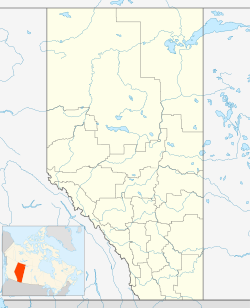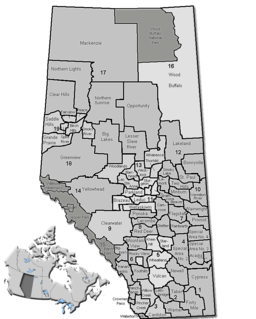| Richmond Park | |
|---|---|
| Unincorporated | |
Location of Richmond Park in Alberta | |
| Coordinates: 54°54′0″N113°11′1″W / 54.90000°N 113.18361°W Coordinates: 54°54′0″N113°11′1″W / 54.90000°N 113.18361°W | |
| Country | |
| Province | |
| Region | Northern Alberta |
| Census division | 13 |
| Municipal district | Athabasca County |
| Government [1] | |
| • Reeve | Doris Splane |
| • Governing body | Athabasca County Council
|
| Time zone | MST (UTC-7) |
| • Summer (DST) | MDT (UTC-6) |
| Website | www |
Richmond Park is an unincorporated area in Alberta.

In law, an unincorporated area is a region of land that is not governed by a local municipal corporation; similarly an unincorporated community is a settlement that is not governed by its own local municipal corporation, but rather is administered as part of larger administrative divisions, such as a township, parish, borough, county, city, canton, state, province or country. Occasionally, municipalities dissolve or disincorporate, which may happen if they become fiscally insolvent, and services become the responsibility of a higher administration. Widespread unincorporated communities and areas are a distinguishing feature of the United States and Canada. In most other countries of the world, there are either no unincorporated areas at all, or these are very rare; typically remote, outlying, sparsely populated or uninhabited areas.

Alberta is a western province of Canada. With an estimated population of 4,067,175 as of 2016 census, it is Canada's fourth most populous province and the most populous of Canada's three prairie provinces. Its area is about 660,000 square kilometres (250,000 sq mi). Alberta and its neighbour Saskatchewan were districts of the Northwest Territories until they were established as provinces on September 1, 1905. The premier has been Rachel Notley since May 2015.







